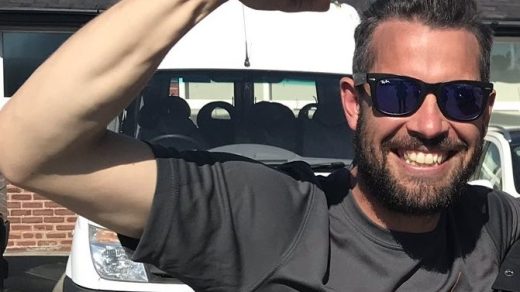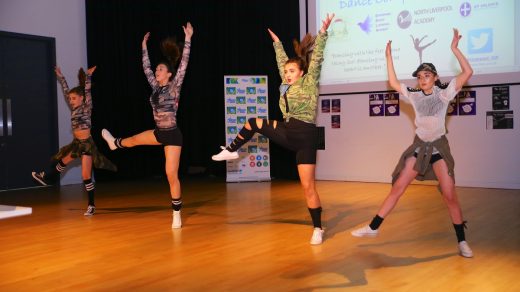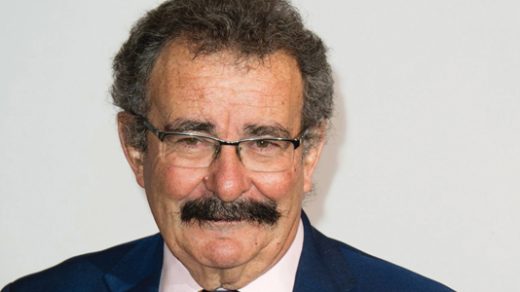Going the extra mile – Youth Award Programmes explored

By Hannah Fowler
Whether it’s the arts, sport or STEM, many students take part in extra-curricular activities to gain new skills and stand out in their chosen career paths. Well-recognised youth award programmes are now common place and give young people the formal recognition and accreditation for their achievements. Educate takes an in-depth look at some of the most popular extra-curricular awards in the UK to explain the what, where and how of each opportunity.
While teachers, schools and students still get to grips with the effects of COVID-19, it makes sense that the priority is catching up with the national curriculum and helping students prepare for their all-important exams or assessments. In January, Education Secretary, Gavin Williamson, announced new measures of assessing, as fair as possible, students work for awarding 2021 GCSE and A-level grading.
But if the pandemic has taught us anything, it’s that some skills can’t be learnt in the classroom alone. Resilience, strength, adaptability, time management and creativity are all important soft skills which can flourish through extra-curricular activities. And according to the World Health Forum (2019), 80% of businesses said soft skills were increasingly important to company success. For students considering university or entering the competitive jobs market, extra-curricular activities that lead to an award or qualification, can help them stand out among other applicants. For younger students, award programmes can ignite a passion in a particular subject area, help them become more confident and meet new friends.
For STEM enthusiasts – CREST Awards
Founded in 1986 by the British Science Association, CREST is a scheme that inspires young people to think and behave like scientists and engineers. The nationally recognised programme gives young people aged 5-19 the opportunity to complete project work in the STEM subjects – science, technology, engineering and maths. It can also be used in conjunction with other activities and schemes, including the Duke of Edinburgh’s Award and the Big Bang Competition. CREST provides activities and ideas for a range of ages, group sizes and abilities to be as accessible as possible. Although mostly run by schools and colleges, both in the UK and internationally, young people can also access the Awards through youth groups, STEM clubs and home education.
The Awards are broken down into levels which have signposted age ranges, resources, helpful tips and templates. The Star and SuperStar levels are designed for children aged 5-7 and 7-11 years respectively and see children complete eight one hour challenges which can be downloaded online. Students aged 10-14 can take part in the Discovery level, which is a one-day STEM project where students work in small teams to complete a project and present their work at the end of the day. The entry fees for the Super and SuperStar Awards start from £1 per child and £3 per student (based on UK entry fees, Wales and international fees may differ).
The Bronze, Silver and Gold levels are aimed at students aged 11+, 14+ and 16+ respectively. The Bronze level (£5 per student) introduces young people to STEM project work and over the course of 10 hours, teams must design their own investigation and record their findings. The Silver and Gold Awards (£10/£20 per student) are highly sought after and a great way to enhance a UCAS personal statement or CV. Students choose their own project idea and gain in-depth experience of the scientific method or engineering design process. No two CREST projects are the same and at Gold level, students must complete a project which makes an original contribution to a STEM field of study.
Upon completion of the Bronze Award, teachers must upload a sample of the students’ work using CREST’s online platform, for moderation purposes. Silver and Gold level projects are assessed externally by CREST’s trained assessors, using specific assessment criteria and result in a personalised certificate upon successful completion. Although no UCAS points are up for grabs, CREST is recognized on UCAS personal statements and is highly regarded.
COVID-19 response – The British Science Association say the CREST Awards scheme has remained unchanged during the pandemic. It has a wealth of free, Awards-qualifying activities and resources on its website such as experiments to make the perfect cup of tea and making cheese using milk and lemon juice! While the closure of schools and colleges may have delayed students’ access to science labs and engineering facilities for the more advanced Silver and Gold Awards, there is no time limit to complete CREST, so students have been encouraged to complete research and plan their project ideas at home. Young people and teachers can also access the online platform 24:7 and upload project work, if required.
For the explorers – Duke of Edinburgh
The Duke of Edinburgh’s Award (DofE) has come a long way since it was first introduced in 1956. Described as an opportunity to discover new interests and develop essential skills for life and work, DofE is open to 14-24 year olds at three progressive levels – Bronze, Silver and Gold. Over 295,000 young people started a DofE programme in 2019/20, allowing them to have fun, make friends, build confidence and gain essential skills to enhance their CVs and university/job applications.
Run by schools, colleges, youth groups and clubs, the young people taking part (or their parents/carers) pay for a place and are supported by leaders who help them through the programme. Fees are currently £22 for Bronze, £22 for Silver and £29 for Gold, but some organisers may add additional fees such as cost of transport and expeditions. Everyone taking part also receives a DofE Card which gets them discount from stores such as Go Outdoors, Blacks and Millets.
There are four main sections of a DofE programme – volunteering, physical, skills, expedition and residential (for Gold only). For the volunteering section, young people must dedicate their time at a charity or not-for-profit, helping people, the community, the environment or animals.
Physical includes any sport, dance or fitness activity for an average of an hour a week. For the skills section, participants need to choose an activity that allows them to prove that they have broadened their understanding and increased their expertise in a chosen skill; ideas include caring for animals, playing a musical instrument or film/video making.
The expedition section requires young people to plan, train and complete an unaccompanied, self-reliant expedition with an agreed aim. It must be completed by participants’ own physical efforts, for example travelling by foot, bike, boat, canoe, wheelchair or horseback. For the Gold Award, the final section is residential, which involves a young person taking part in a shared activity or specific course with people they don’t know in a residential setting away from home.
COVID-19 response – In response to the disruption this past year, DofE launched the #DofEWithADifference campaign to encourage organisers and young people to keep going and find new ways to complete their sections while at home or online. For the next academic year, any young person who has completed the skills, volunteering and physical sections of their Award will receive a DofE Certificate of Achievement. Anyone wh receives the Certificate can go on to complete their expedition and/or residential at a later date, and would then achieve their full DofE Award. Students can take a break from the DofE activities and pick them back up again when volunteering, expeditions and residentials can resume. Young people have until they’re 25 to achieve their Award, but they can speak to their DofE Leader if they require an extension. In April, over 8,000 new Gold Award holders attended a virtual event in celebration of their Awards, after the usual ceremonies at St James’s Palace and Buckingham Palace were cancelled due to the pandemic.
For future entrepreneurs – Young Enterprise
Young Enterprise (YE) is a national charity which works with young people to give them the work skills, knowledge and confidence to succeed in the changing world of work. Through its hands-on employability, enterprise and financial education programmes, it aims to reduce youth unemployment and help young people realise their full potential. Since 1962, the charity has worked with businesses, schools and the government to engage over four million young people – in 2018/19 alone YE’s partnership of teachers, volunteers, supporters and staff have engaged over 482,000 young people, helping them develop their financial, business and entrepreneurial capabilities.
The charity has fun, interactive programmes for primary schools, such as its Fiver Programme and Tenner Challenge, where pupils are pledged £5 or £10 respectively and have one month to set up a business and get their enterprise off the ground. The Tenner Challenge culminates with the teams selling their product or service and pupils get to keep or donate any profits they earn in the process. Pupils on the Tenner Challenge also compete at a national level against primary schools across the country, with winners invited to an Awards Ceremony in London.
It’s secondary school programmes all aim to introduce young people to the world of work, and help students develop essential skills for their futures. One of the most respected and immersive programmes for young people aged 15-18 is the Company Programme. Running flexibly from 12 weeks to a full academic year, young people from year 9 to 13 start up their own student company, making their way through key milestones of idea development, market research, creating the product/service, promotion and ultimately trading.
The cost of one ‘student company’, which allows up to 32 students to participate, is £530 for state schools. Finalists are invited to the UK Company of the Year Awards, which took place virtually this year, where a number of awards are announced including the overall winner, runner-up and sustainability award. The UK winner then represents the UK at the European finals, going up against schools and students from across Europe.
YE say that the programme is not just aimed at those with an interest in business, the programme can be used to provide real-life context to many subject areas, from using DT and computing to design a product, English to develop persuasive writing techniques for marketing and maths to understand profits and selling price. The programme can also support schools in meeting Ofsted criteria by providing young people the opportunity to apply skills in real-world situations.
With work experience becoming increasingly challenging during the pandemic, YE describes the Company Programme as the ‘next best thing – experience of work’. Teams will have the opportunity to engage with a volunteer mentor from the world of work, apply classroom learning in a real context and develop important skills for their futures. Although the programme doesn’t carry any UCAS points, UCAS uses YE as an example of what to put on personal statements. Plus, post-16 students can use the Company Programme to gain an Extended Project Qualification (EPQ), which attracts up to 28 UCAS points.
COVID-19 response – Young Enterprise has adapted its programmes to provide the most flexible way of working for students and teachers during the next academic year. It has minimised the amount of teacher time required to support students on its programmes and introduced a blended learning approach. Participating students and teachers now have access to a dedicated online platform, DBS checked and trained volunteer Business Advisors, a brand-new e-commerce platform for online trading and a series of webinars to support students with key aspects of the programme over the course of 20/21.
Impact and Diversity
A recent report from 2019 (‘An Unequal Playing Field’), found huge disparities in children’s participation rates across a wide range of extra-curricular activities, depending on their social background. Whether it was arts, sport, music, or voluntary work, the research highlighted that participation in such activities depends on the schools they attend, the area they grow up in and their socio-economic background.
Many of the extra-curricular awards discussed offer costeffective, flexible options, so any student, regardless of background, can take part. For example, the CREST Awards offers grants and funding to schools and SEND schools, to help them offer the programmes to students on pupil premium or from ethnic backgrounds. To help young people facing disadvantage recover from the effects of the pandemic, the DofE has launched a Resilience Fund to reduce barriers to participation and help 12,000 young people start their programme until March 2021. Young Enterprise is committed to increasing its engagement in deprived areas, and in 2018/19 it worked with 57% of secondary schools in the 30% most deprived areas in England and Wales.
As well as developing soft skills, taking part in such award programmes can yield great academic results. CREST reports that students who successfully complete a Silver Award or higher achieve half a grade higher on their best science GCSE result.
Free School Meal (FSM) students who completed the Silver Award were 38% more likely to study a STEM subject at AS level (Quantifying CREST, 2016). A DofE survey from 2020 found that 62% of participants felt more confident in overcoming difficult situations as a result of completing their DofE Award, and 78% agreed or strongly agreed that it has enhanced their CV or UCAS application. 90% of students who completed the YE Company Programme said that they have built skills and knowledge in commercial promotion, which will be valuable for their future careers.







